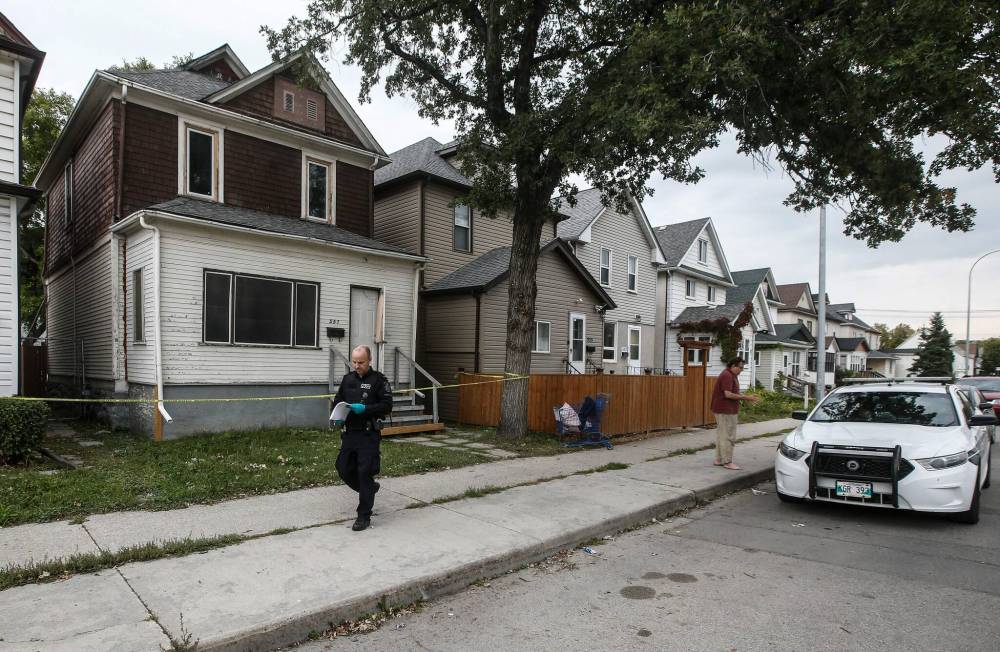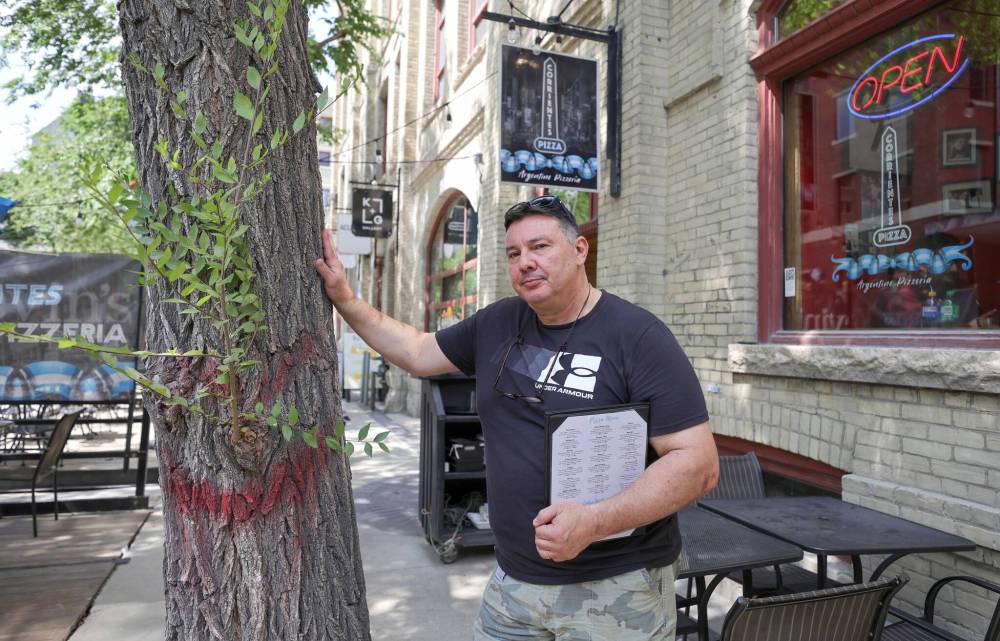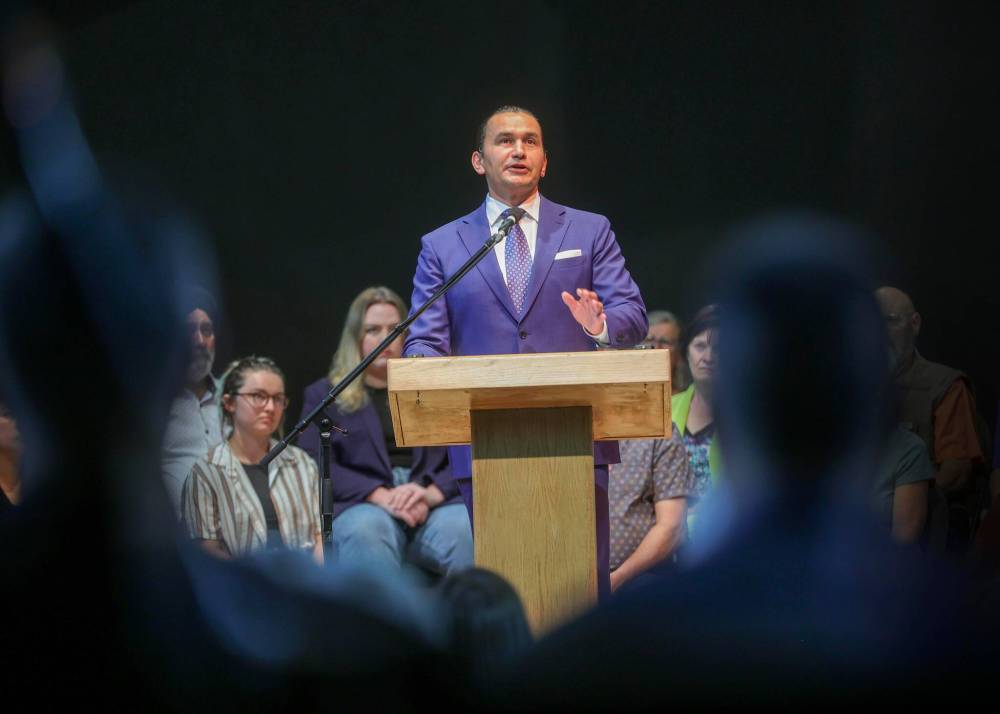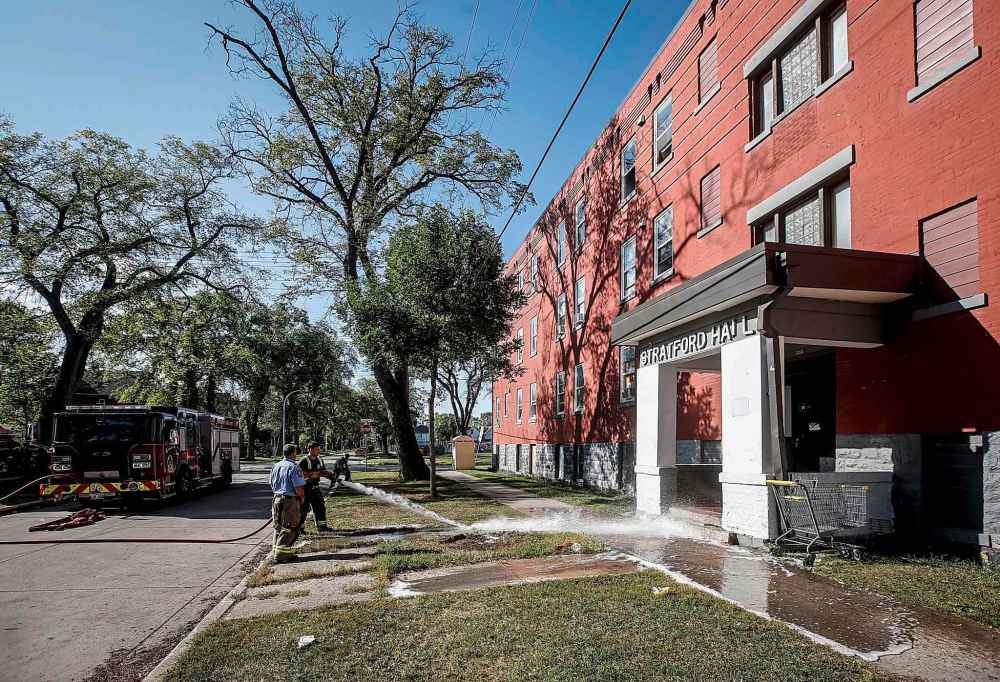Crime and disappointment Surveys show public-safety fears are among voters’ top concerns in the days before the provincial election
Read this article for free:
or
Already have an account? Log in here »
To continue reading, please subscribe:
Monthly Digital Subscription
$19 $0 for the first 4 weeks*
- Enjoy unlimited reading on winnipegfreepress.com
- Read the E-Edition, our digital replica newspaper
- Access News Break, our award-winning app
- Play interactive puzzles
*No charge for 4 weeks then billed as $19 every four weeks (new subscribers and qualified returning subscribers only). Cancel anytime.
Read unlimited articles for free today:
or
Already have an account? Log in here »
Hey there, time traveller!
This article was published 26/09/2023 (237 days ago), so information in it may no longer be current.
Two deadly shootings happened just a few hours and blocks apart from Will Jones’ home in the North End earlier this month.
The longtime inner-city resident has been mugged several times and his garage has been broken into three times in the past two years — more than in the preceding decades.
He says he’d much rather dodge used needles on the streets than a “hail of gunfire.”
JOHN WOODS / WINNIPEG FREE PRESS FILES Police investigate at 557 Mountain Avenue which was the scene of Winnipeg’s latest homicide earlier this month.
After 43 years living in the area, Jones says it’s abundantly clear to him poverty and addiction feed into crime.
“I won’t leave the house past 8 p.m. It’s just too much of a risk,” he says.
Still, Jones says he believes “recency bias” is at play in some public perceptions of worsening crime. The problems have always been there, in every neighbourhood, he says, but long-term solutions have been lacking.
“When you address the systemic issues of poverty, housing, addiction, you can curb that (violence),” he says. “People realize that systemic issues haven’t been dealt with, or dealt with in half-measures… they’ve never been given the chance to work.”
Last-minute pledges to tackle Manitoba’s high crime rates are still trickling in during the final days of the provincial election campaign.
Promises to be “tough on crime” are virtually universal across party lines in a campaign that for weeks has been short on specifics about how prospective provincial leaders would prevent violence and improve public safety if they form government after Tuesday’s votes are counted.
“People realize that systemic issues haven’t been dealt with, or dealt with in half-measures… they’ve never been given the chance to work.”–Will Jones
Crime is top of mind for Manitoba voters, who rank it as one of their top three most important concerns during this election, up there with health-care and poverty/homelessness, according to a Probe Research poll conducted earlier this month. The same poll declared a tie between the NDP and Progressive Conservative leaders as to who is best poised to deal with crime and public safety — the 1,000 survey respondents were split on that point.
Crime rates are up across the province, with significant increases in violent, property and youth crime, according to Statistics Canada. The national data shows Manitoba had the fastest-rising crime index of all provinces in 2022, logging a 14 per cent increase.
Manitoba’s three major parties have acknowledged the need to deal with “root causes,” and their platforms show they’ve considered calls to increase mental-health and addictions treatment resources. But the parties are still tasked with taking short-term action the voting public can count on on the way to cast their ballots.
“There’s a crime problem based in addictions and homelessness. I understand that. We have a social problem. Fix the social problem,” says Exchange District restaurant owner Alfonso Maury. “In the meantime, what do we do?”
RUTH BONNEVILLE / WINNIPEG FREE PRESS FILES Corrientes Argentine Pizzeria, where Alfonso Maury is chef and owner, has been broken into three times in the past year-and-a-half, following a decade without any such incidents.
Corrientes Argentine Pizzeria, where Maury is chef and owner, has been broken into three times in the past year-and-a-half, following a decade without any such incidents. The break-ins and thefts cost Maury more than $7,000, prompting him to speak out about property crime and meet with restaurateurs and local leaders to discuss the topic in August. His local city councillor and Member of Parliament attended the meeting. No provincial representatives or candidates were there.
Maury, who didn’t express support for any particular party or politician, says he believes downtown is beautiful and wants to see it that way again, rather than looking like a “ghost city with no security.”
“It doesn’t matter how much money you have if you don’t spend it properly,” he says when asked about political promises.
“Show me the results.”
“It doesn’t matter how much money you have if you don’t spend it properly… Show me the results.”–Alfonso Maury
Safety is not just a concern for downtown or urban voters. The Association of Manitoba Municipalities previously sounded the alarm about rising crime rates, calling on provincial leaders to increase police funding and not download police-reform costs onto smaller municipal budgets. Earlier this month, the association evaluated parties’ promises and praised the apparent consensus to prioritize public safety.
Both the Progressive Conservatives and the NDP have pledged their support for stricter bail reform: PCs lobbying at the federal level, NDP making promises at the provincial level. Both parties have announced plans to spend provincial dollars on security systems for businesses and/or individuals, and have vowed to make downtown Winnipeg safer.
Both parties, too, have said they’ll crack down on crime: the PCs have repeated the pledge over the course of their seven-year tenure in government, and the NDP have emphasized it during the campaign, hoping to quash any perception that a return to NDP rule would mean weaker criminal-justice policies.
RUTH BONNEVILLE / WINNIPEG FREE PRESS FILES NDP Leader Wab Kinew has adopted a tough-on-crime stance, promising tighter provincial bail conditions within three months of taking office.
The Progressive Conservatives haven’t introduced a crime-fighting platform , but they have ramped up public-safety announcements in recent days, securing support from the former president of the Winnipeg Police Association, the union representing more than 1,400 officers and nearly 500 support staff.
The PCs and leader Heather Stefanson are promising $1 million annually for an expanded Winnipeg Police Service property crime unit, financial support for hotels and retailers hit with break-ins, and $5 million toward treating post-traumatic stress disorder in first responders — a move former WPA president Moe Sabourin cheered this week.
While in government, the party added 10 prosecutor positions meant to focus on gun and gang violence. The PCs have fielded accusations they’re now restoring some of their previous justice cuts as a pre-election ploy. No funding announcements have been made so far for Manitoba corrections, but under the Tories, the provincial drug-treatment court program was expanded and a temporary-absence work program resumed for low-risk offenders in provincial jails.
The Progressive Conservatives decided to close the Dauphin jail in early 2020, and the NDP has vowed to replace it with a restorative justice centre.
The PCs criticized the opposition NDP for voting against the violent crime strategy the PCs put forward in last spring’s budget.

NDP Leader Wab Kinew has adopted a tough-on-crime stance, promising tighter provincial bail conditions within three months of taking office, and proposing “unexplained wealth” legislation that would target drug dealers by requiring individuals to justify big-ticket belongings.
“We will bring the hammer down on drug traffickers,” Kinew said during a televised leaders debate last week.
The Manitoba Liberal party’s platform focuses on housing as a crime-reduction measure. Leader Dougald Lamont said he’ll go after human traffickers and illegal cannabis sales, proposing a business registry searchable by police and prosecutors.
The Liberals promised to spend $5 million expanding women’s shelters and $1.5 million on anti-gang and crime-prevention programs. The bulk of the spending in the Liberals’ plan to reduce crime ($40 million) would go toward developing vacant buildings into shelters for the homeless.
That plan is the most specific of the three parties, says Michael Weinrath, a professor of criminal justice at the University of Winnipeg who has worked as a program evaluator analyzing the effectiveness of provincially funded justice initiatives. He noted the relatively few crime-focused announcements during the campaign and says he would have expected the parties to set more targets.
Weinrath is not a member of any party. He says he believes in a public-health approach to solving crime.
“It sounds corny,” he says. “But you want to give people hope — hope that they can find accommodation, hope that they can get help for their addiction without having to go to jail or get charged with a crime to get (help).”
“It sounds corny… But you want to give people hope.”–Michael Weinrath
More people are starting to understand the root causes of crime, but Weinrath says he wonders about public perceptions of what it means to fight crime.
“As a criminologist, I’m always trying to tell people more jails and police is not necessarily going to make us safer. But realistically, people will think about that, and they’ll think about that as more concrete than health-care. People may not necessarily make that connection.”
From Jones’ perspective, the need for safe housing is inextricably tied to making neighbourhoods safer.
“We are committed to this area,” he says, speaking for himself and his fellow longtime North End residents while making a larger point about the vision he sees as necessary for Manitoba.
“But there’s only so much we can take before it becomes untenable.”
katie.may@winnipegfreepress.com

Katie May
Reporter
Katie May is a general-assignment reporter for the Free Press.
Our newsroom depends on a growing audience of readers to power our journalism. If you are not a paid reader, please consider becoming a subscriber.
Our newsroom depends on its audience of readers to power our journalism. Thank you for your support.
















